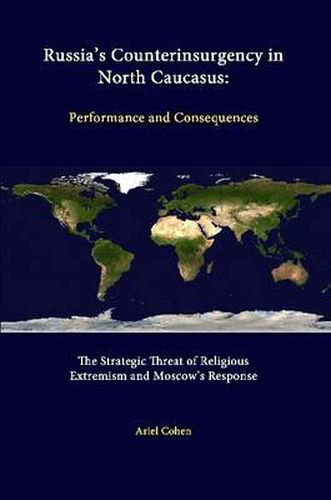Readings Newsletter
Become a Readings Member to make your shopping experience even easier.
Sign in or sign up for free!
You’re not far away from qualifying for FREE standard shipping within Australia
You’ve qualified for FREE standard shipping within Australia
The cart is loading…






The North Caucasus has been a source of instability for Russia ever since the Russian Empire brought the region under its control in the course of the late-18th and the first half of the 19th centuries. General Alexei Yermolov, a top Russian commander in North Caucasus, used inhumanely harsh methods to conquer the region and retain it under the Romanov crown's control. Hundreds of thousands were ethnically cleansed, and many civilians murdered. In the Russian Civil War (1918-21), which took place right after World War I, the North Caucasus became a victim of both the tsarist White Army and the communist Red Army, who plundered the region and refused to give its peoples the rights they hoped to regain after the war was over. A little over 2 decades after that, the North Caucasus nations faced merciless deportations as a result of imaginary crimes they allegedly committed against the Soviet Union during World War II.
$9.00 standard shipping within Australia
FREE standard shipping within Australia for orders over $100.00
Express & International shipping calculated at checkout
The North Caucasus has been a source of instability for Russia ever since the Russian Empire brought the region under its control in the course of the late-18th and the first half of the 19th centuries. General Alexei Yermolov, a top Russian commander in North Caucasus, used inhumanely harsh methods to conquer the region and retain it under the Romanov crown's control. Hundreds of thousands were ethnically cleansed, and many civilians murdered. In the Russian Civil War (1918-21), which took place right after World War I, the North Caucasus became a victim of both the tsarist White Army and the communist Red Army, who plundered the region and refused to give its peoples the rights they hoped to regain after the war was over. A little over 2 decades after that, the North Caucasus nations faced merciless deportations as a result of imaginary crimes they allegedly committed against the Soviet Union during World War II.